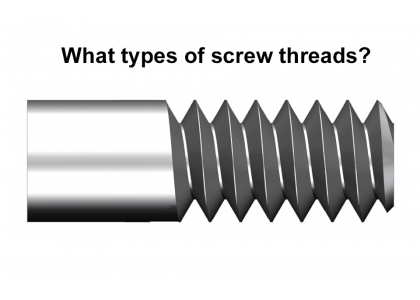
As an indispensable fastener in daily life, the thread design of screws plays a crucial role. Understanding different types of threads can help us better choose and use screws.
1. Common Thread
Ordinary thread is the most common type, and its thread profile is a 60-degree isosceles triangle. This type of thread is widely used in various mechanical equipment and daily necessities, such as bolts, nuts, etc. Common threads have excellent fastening and versatility, making them an ideal choice for connection and fixation.
2. Pipe Threads
Pipe threads are mainly used for pipe connections, and their thread profile is a 55-degree isosceles triangle. This type of thread is characterized by good sealing performance and the ability to withstand considerable pressure. In pipe systems such as water pipes and air pipes, pipe threads play a crucial role, ensuring the stability and sealing of pipe connections.
3. Trapezoidal thread
The profile of trapezoidal threads is an isosceles trapezoid and is mainly used in transmission and position adjustment devices. Due to its tooth profile design, trapezoidal threads have good self-locking properties and high efficiency during the transmission process. In industrial fields such as machine tools and automobiles, trapezoidal threads are widely used in components like lead screws to achieve precise displacement control.
4. Serrated thread
The profile of the serrated thread is asymmetrical and is usually used for transmission and connection with special requirements. This type of thread combines the features of trapezoidal threads and rectangular threads, featuring both high transmission efficiency and excellent self-locking performance. In applications that require high strength and high precision, such as the aerospace field, serrated threads play a significant role.